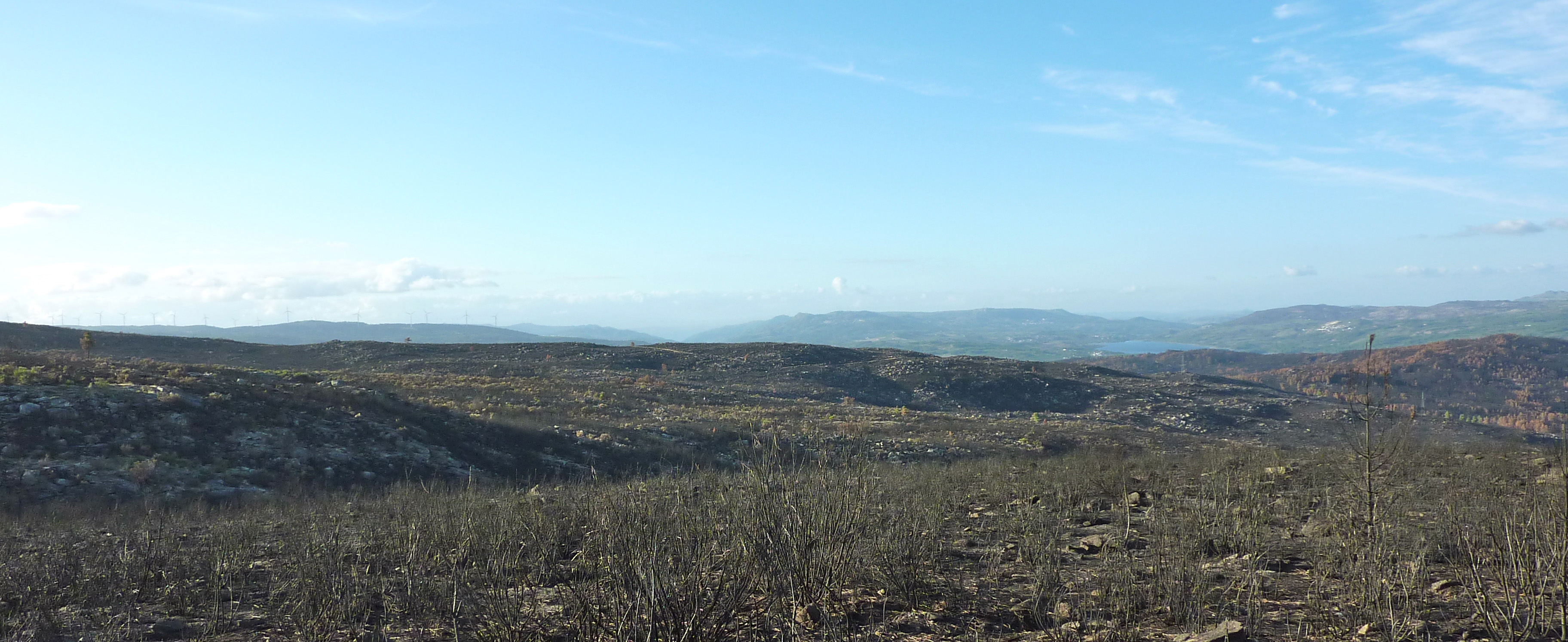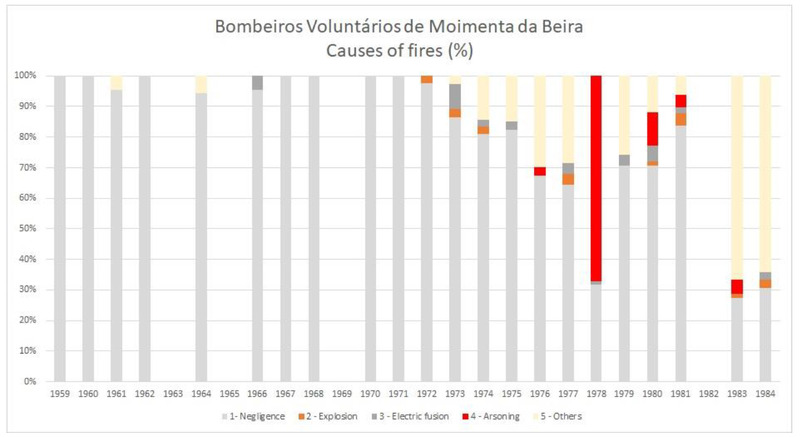Causas para os incêndios | Causes for fires | may 2023
Título | Title
Causas para os incêndios | Causes for fires | may 2023
Data | Date
1/05/2023
Notícia | News
Nas décadas de 1950 a 1980, as corporações de Bombeiros Voluntários reportavam, ao governo central, os serviços prestados anualmente. Um formulário próprio era preenchido com o número de ocorrências e sua distribuição ao longo dos meses, o esforço em horas de trabalho e o combustível gasto, e as causas dos incêndios atendidos. Recentemente, no arquivo da Associação Humanitária dos Bombeiros Voluntários de Moimenta da Beira, encontrámos um conjunto de dados para o período 1959-1984 que levantam várias interrogações sobre a origem dos incêndios e sobre o seu registo ao longo do tempo. Entre as causas, “descuido” é a mais comum, termo que remete para fogos acidentais. Todavia, nada sabemos através desta fonte sobre os contextos em que os mesmos aconteceram. Queimadas que se descontrolaram? Fogo para usos domésticos? A que se refere a categoria “outros”? Para além de causas naturais, que outras estariam incluídas? Usos pirotécnicos? A categoria “Fogo-posto” só aparece no pós-Revolução, com um máximo em 1978. Tratar-se-á de uma emergência tardia desta causa ou antes o resultado de diferentes formas de registar as origens dos incêndios, aqui intencionais, quiçá silenciados pelos bombeiros durante o Estado Novo?
From the 1950s to the 1980s, the volunteer firefighters’ associations reported to the central government on their annual services. A special form was filled with the number of occurrences and their distribution over the months, the effort in working hours and fuel spent, and the causes of the fires attended. Recently, in the archive of the Associação Humanitária dos Bombeiros Voluntários de Moimenta da Beira, we found a collection of data for the period 1959-1984 that raises several questions about the origin of the fires and how they were recorded over time. Among the causes, “negligence” is the most common, a term that refers to accidental fires. However, we know nothing from this source about the contexts in which they occurred. Burnings that got out of control? Domestic uses of fire? What does the category “others” refer to? Apart from natural causes, what others would be included? Pyrotechnic uses? “Arson” only appears in the post-Revolutionary period, with a maximum in 1978. Is this a late emergence of this cause or rather the result of different ways of recording the origins of fires, perhaps silenced by firefighters during the Estado Novo?
From the 1950s to the 1980s, the volunteer firefighters’ associations reported to the central government on their annual services. A special form was filled with the number of occurrences and their distribution over the months, the effort in working hours and fuel spent, and the causes of the fires attended. Recently, in the archive of the Associação Humanitária dos Bombeiros Voluntários de Moimenta da Beira, we found a collection of data for the period 1959-1984 that raises several questions about the origin of the fires and how they were recorded over time. Among the causes, “negligence” is the most common, a term that refers to accidental fires. However, we know nothing from this source about the contexts in which they occurred. Burnings that got out of control? Domestic uses of fire? What does the category “others” refer to? Apart from natural causes, what others would be included? Pyrotechnic uses? “Arson” only appears in the post-Revolutionary period, with a maximum in 1978. Is this a late emergence of this cause or rather the result of different ways of recording the origins of fires, perhaps silenced by firefighters during the Estado Novo?

Serra da Lapa, 6 de agosto de 2020
